 |
|||||||||||||
|
|
|||||||||||||
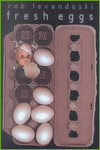 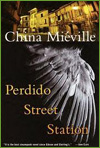 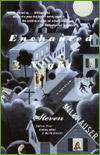 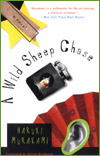 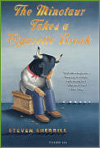 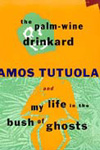 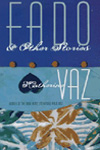 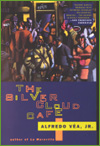 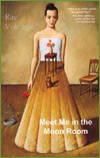
|
Continued... Levandoski, Rob. Fresh Eggs. (Plume, 2003) This is a rural American novel, a satire, and a contemporary fantasy that manages to be ironic and warm-hearted at the same time. It's the story an Ohio chicken farmer and his daughter, a girl who mysteriously starts to sprout feathers. Levandoski uses this premise to explore modern farming, the corporate food business, and life in modern America - but most of all to tell a moving tale about fathers and daughters. (Terri Windling) McKillip, Patricia A. Stepping from the Shadows. (Atheneum, 1982; Out of Print) Wandering the realm between domestic realism, contemporary fantasy, and Young Adult coming-of-age fiction, this is the story of a young American writer haunted by the mysteries of her past, her present, and her future. (Terri Windling) Miéville, China. Perdido Street Station. (Del Rey, 2003) This novel (set among soldiers, artists, magicians, mutants, and junkies in the magical city of New Crobuzon) borrows tropes from urban fantasy, science fiction, and noir suspense, with a dash of Mervyn Peake-style imagery, a pinch of Borgesian surrealism. (Terri Windling) Millhauser, Steven. Enchanted Night. (Vintage, 2000) This slim but powerful volume, written as a series of luminous vignettes, drifts gently over many borders in its use of myths, dreams, and the Pied Piper theme to tell the story of one enchanted night in a small Connecticut town. (Terri Windling) Murakami, Haruki. A Wild Sheep Chase. (Kodansha International, 1989/Vintage 2002) PW called it "a mock-hardboiled mystery, a metaphysical speculation and an ironic first-person account of an impossible quest" and "a postmodern detective novel in which dreams, hallucinations and a wild imagination are more important than actual clues." (Terri Windling) Ryman, Geoff. Unconquered Countries: Four Novellas. (St. Martin's Press, 1994) Four marvelous novellas from British writer Ryman show what it means to be interstitial. "A Fall of Angels" is an examination of entropy. "Fan" explores the relationship between media idols and their fans in a way you've never seen before. "O Happy Day" makes chilling use of a fascist concentration camp to spin our notions of sexuality. And "Unconquered Country" serves up a disturbing future China where people can give birth to machinery, and locations and devices are alive and thinking. (Gregory Frost) Sherrill, Steven. The Minotaur Takes a Cigarette Break. (John F. Blair Publishing, 2000) After years of wandering, the Minotaur — Theseus' Minotaur, not as dead as he was rumored to be — ends up in a small midwestern town, where he washes dishes at a greasy spoon restaurant. He's big, he's slow, he's inarticulate, but basically, he's just a regular guy. This is not, however, just a regular novel. It's spare and romantic and moving and utterly convincing. (Delia Sherman) Tutola, Amos. The Palm Wine Drunkard, and My Life in the Bush of Ghosts. (Grove Press, 1980) Grove/Atlantic, Inc. has put both books out in one volume. Tutuola weaves bizarre surrealistic tales derived from Yoruba folktales; but he isn't just retelling tales, he's blending them into his own fantastic landscape in a way that pulls together the native and colonial essences of Africa into something new--something "meta-colonial". (Gregory Frost) Vaz, Katherine. Fado: & Other Stories. (University of Pittsburgh Press, 1997) Vaz criss-crosses the borders between many genres—realism, surrealism, horror, historical fiction and magical realism, to name just a few. (Terri Windling) Vea Jr., Alfredo. The Silver Cloud Café. (Plume, 1997) In this fine novel, Vea weaves elements of magical realism, mysticism, and historical fiction into a hard-boiled murder mystery. Reaching from the Mexican Revolution to the present day, The Silver Cloud Cafe explores the lives of immigrants in San Francisco. (Terri Windling) Vukcevich, Ray. Meet Me in the Moon Room. (Small Beer Press, 2001) Ray Vukcevich is just not like anybody you've read. This is a meticulous writer who recognizes no borders, no genres, whose fiction just goes where it needs to, not merely in terms of subject matter, but in voice, approach, style. There are people whose illness causes them to grow spacesuts and float away; and baby diapers fill with things not dreamt of in your philosophy; and dead lovers meet in theme park rides. (Gregory Frost) Waldrop, Howard. A Dozen Tough Jobs. (Mark V. Zeising, 1989; Out of Print) So you take the labors of Hercules, and you wind them up as tight as they'll go and drop them onto a Mississppi landscape circa 1920, propel them through the characters of the powerful Boss Eustis and to two of his all-but-indentured workers, I.O. Lace and Houlka Lee, and you have a book that's a fantasy, a mythological redoubling as much as a retelling, and an overview of harsh life in Mississippi in the 1920s. (Gregory Frost) Whitehead, Colin. The Intuitionist. (Anchor, 1999) This fabulously interstitial novel takes place in an unnamed, high-rise city much like Manhattan (with 19th-century, 20th-century, and near-future elements). In the guise of a stylish noir thriller/near-future murder mystery, the author skewers race and gender issues, riffs on history past and present, and all the while tells a damn good tale. (Terri Windling) |
|||
| previous page | 1 | 2 | 3 | 4 | 5 | ||||